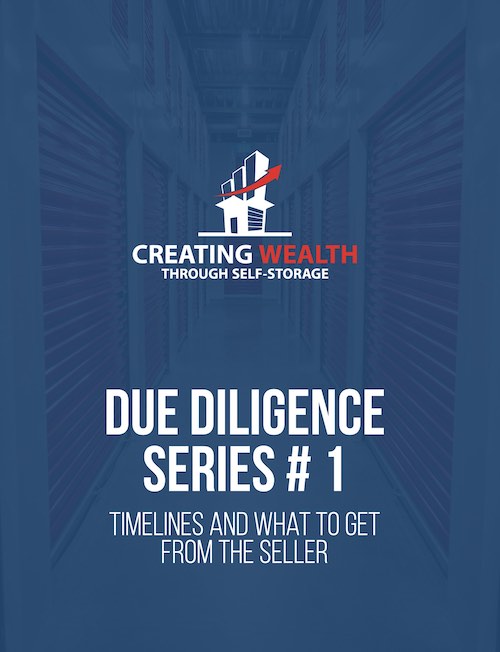Self Storage And Opportunity Zones-What’s The Big Deal?
If you are in the self-storage business, I am sure you have her a lot about “Opportunity Zones” along with the new tax laws that came out as part of the person in the white house’s Tax “Reform” bill.
All I have got to say is, “What’s the big deal about it?”
I have seen lots of new “funds” that are going to invest in Opportunity Zones.
“This is going to spur more revitalization than any single tax incentive in the history of our country.” And so forth.
Or as the person in the white house says, “They will be great. Really great.”
OK, I’ll admit it. I am not a fan of the person in the white house. In fact…you could say…well, never mind.
My parents taught me to not say anything if you couldn’t say something kind about a person. So I’ll just say he has interesting hair.
What’s The Big Deal?
But specifically for self-storage development, I see little benefits in chasing opportunity zone investing.
No, I am not saying that if there is a self-storage opportunity that meets the criteria of owning in a submarket that is in an opportunity zone, don’t take advantage of the benefits (we will discuss those in a minute).
Just don’t go thinking those “benefits” are going to compensate for a lousy submarket. If you are not making any money, saving taxes is of little benefit.
Why The Opportunity Zone Is Not That Big A Deal For Self Storage
First of all, at its best, Opportunity Zones is designed to move investment dollars to underserved areas of the country where development probably isn’t going to happen. I think that is a good thing.
For housing or retail perhaps. Not for something the area does not really need, like self-storage.
That is the noblest thing anyone can say about it.
Mostly, what I have seen people get all fired up about is they think they can shelter their capital gains tax a “never have to pay it.”
That’s mostly not true by the way, as you will see, and if it was, well I have my own thoughts about that.
1986 Tax Reform Act
I remember early in my real estate career, I organized a presentation for my Father, who had accumulated some modest wealth by the time he was in his 70’s, with someone selling shares in a tax-sheltered real estate syndication.
The entire presentation dealt with the evils of taxes and how all smart people should never pay any.
“The day I was fully sheltered was the best day of my life”. This was one of the lines the representative told my Dad during his presentation.
My Father did not invest, and shortly after that, Ragan’s Tax Reform Act came out and those type of offerings were gone.
I have not seen as much excitement since those days of tax-sheltered syndications. The only things are, they did shelter tax, these mostly just defer it and reduce some of it slightly.
There can be a real benefit if you keep a project in service for over ten years, and if it is in a designated opportunity zone. But what I see people getting all excited about is not that.
I have not seen anything yet in this “opportunity” anywhere near as beneficial to us as 1031 tax-deferred exchanges.
What Are The Benefits of These Opportunity Zone Offerings
Well, one of the benefits is that unlike 1031 exchanges, you can roll dollars from the sale of not just real estate, but an asset that has a capital gain into an opportunity zone investment. Also, there is no need for an “accommodator” to handle the money like 1031.
However, unlike 1031s. which also role the tax basis of the previous property into the new investment, your capital gain is in fact calculated on the sale of the asset before the funds are re-invested.
And you will have to pay for it.
Just not now.
If you keep the new property in service for more than seven years, at that time you will pay the capital gain tax bill. You will get a 15% discount, but you will be paying it based on the gain from the original sale.
If you keep the opportunity zone property in service for 5 years, then you pay 90% or the capital gains tax due from the sale of the original sale.
If the opportunity zone deal is sold before five years, you will owe the full amount of the capital gain you rolled into the opportunity zone deal (not to mention again on the opportunity zone deal because it wasn’t in service for at least ten years).
No way around this one.
Perhaps the most beneficial aspect of the new “opportunity zone” deal is that if you do keep the project in service over ten years, yes, there will be no capital gain tax due on that project.
Don’t Let Future Avoidance Of Taxes Determine Which Self Storage Project To Go Into
I am not qualified to advise you on your tax salutation. My opinion is, what you invest in should be driven by return on capital. If there is no increase in value or profit, there will be small capital gains anyway (mostly the captured depreciation).
1031 tax-deferred exchanges are a viable way, in my opinion, to defer capital gains as you use investment dollars to create wealth. But in using 1031 sales proceeds, always invest in good investments.
What determines a good investment in self-storage starts with the fundamentals of the submarket. Population growth, spending power, etc.
Then if the project is managed right, you have received good cash flow and have created some increased value through proper asset management.
The goal is to create a big capital gain. Yes, at the time of disposition, I probably want to minimize the tax bill due and hopefully be able to reinvest my entire profit again in another investment that serves my goals or my family goals at that time.
That sounds a lot like 1031 to me.
I will not be advising anyone I work with to invest in opportunity zones unless the submarket actually works for self-storage. If it does, the demand is there, and the market will rent, then absolutely design your holding strategy to take advantage of any benefits the opportunity zone may offer.
I am not just going to chance to put investment dollars in a deal simply because if I keep it ten years I won’t have to pay capital gains tax.
Most investors I have worked with don’t want to keep their money tied up that long anyway.
I believe in chasing the good deals that generate profit. l will deal with the capital gain by 1031 or a DST at the time of sale if at that point I want to avoid paying capital gains.
And yes, there is a way to never pay capital gains in your life using 1031.
Keep reinvesting, then when you die, the last property your investment dollars are in, the tax basis will be stepped up to the then market value, and your estate won’t have to pay all the capital gains you deferred from deal to deal.
That still works for me.



